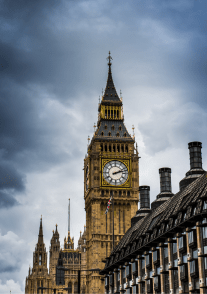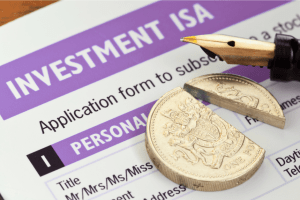This was not a Budget according to the Chancellor of the Exchequer, Rachel Reeves, but rather a forecast statement so we were not expecting much in the way of announcements.
It was information about the financial balance sheet of the UK.
Following every Budget or Statement, I write an article to give you a concise overview of some of the main points, with particular reference to any changes that have particular relevance to those living outside of the UK, and especially in the GCC.
The British press will cover many points in detail but much of it will not be directly relevant to those of us who do not live in the UK so this article focuses on the issues that will be of most interest to us.
 Reeves started by saying that that in July of this year the Labour Party was given a mandate for change and the way to drive the economy is by investment.
Reeves started by saying that that in July of this year the Labour Party was given a mandate for change and the way to drive the economy is by investment.
Overall, taxes are to rise by £40bn according to the Chancellor, more than the £35bn was what was being previously suggested.
UK inflation fell further than expected in February, dropping from 3% to 2.8%, according to the Office for National Statistics (ONS). Despite that, core inflation remains at 3.5%.
The most significant contributors to the levels of inflation were rises in the price of alcohol and tobacco, communication and miscellaneous goods and services. We have not seen much in the way of economic growth and that makes it harder for the Bank of England to reduce interest rates, albeit there have been three small cuts since the start of this Parliament.
A few other points were made and these are some of the main ones:
Individual Savings Account (ISAs)
NO CHANGES at this time.
 No change to the contribution levels, although only UK tax resident can make contributions. Non-residents can retain their ISAs but cannot pay in any more.
No change to the contribution levels, although only UK tax resident can make contributions. Non-residents can retain their ISAs but cannot pay in any more.
There will be a formal review, in association with the Financial Conduct Authority. No dates given.
House building
There was a reiteration to build 170,000 further homes in the UK by 2030. That would be a 40% year high in housebuilding levels, if it happens.
The Chancellor announce that the Government would support this growth by investing £13bn more in capital infrastructure over the next five years, including launching a construction skills package to train up to 60,000 more skilled workers, and investing an additional £2bn in social and affordable housing.
While commendable, I think this is unlikely to happen at the intended level even with permission to build on grey land. There are simply not the people to build them, even with new trainees in the next few years, and importantly, the accessible materials to do so.
National Insurance
 No mention of further changes to voluntary National Insurance contributions so that will be unchanged.
No mention of further changes to voluntary National Insurance contributions so that will be unchanged.
Contact me for my free, informative fact sheet on how to make voluntary payments and to register your right to back date between 2006 and 2016.
Action required before 5th April 2025.
Crackdown on tax evasion
Remember – legitimately avoiding tax is fine, such as being non-resident and not paying income tax on overseas income, or using tax allowances. Evasion, failing to pay what is legally due, is very much illegal.
There was an announcement, as much a reiteration, to close in on promoters of tax avoidance schemes and the prosecution of more tax fraudsters.
Plans were announced to “increase the number of tax fraudsters charged each year by 20%“. Reeves said these changes will take the total revenue raised from reducing tax evasion to £7.5bn, which she states has been verified by the Office for Budget Responsibility (OBR).
 The full statement states that, “at the end of December 2024, the stock of tax debt – unpaid tax liabilities owed to His Majesty’s Revenue and Customs (HMRC) – was over £44 billion, more than double the level five years ago.”
The full statement states that, “at the end of December 2024, the stock of tax debt – unpaid tax liabilities owed to His Majesty’s Revenue and Customs (HMRC) – was over £44 billion, more than double the level five years ago.”
That’s a huge number. Even more worryingly, nearly half of the outstanding debts are over a year old and the longer they are left, the harder they become to collect.
Defence Spending
There was an announcement of a significant increase in defence spending to 2.5% of GDP by 2027. This is a further £2.2bn spending uplift for the Ministry of Defence for 2025/26.
The money will be spent on advanced weaponry as well as providing better homes for military families.
This is a response to an uncertain and changing world.
Whatever you feel about this, it’s relevant that the defence sector currently supports 434,000 jobs across the UK – employing 1 in 60 people in the UK.
Other points
- Universal Credit incapacity benefits will be frozen until 2030 for new claimants and will no longer be in line with inflation.
- Universal Credit will rise to £106 a week by 2029/30 (currently £92 p/w).
- The government will undertake a fundamental review of the Personal Independence Payment (PIP) assessment.
- Removal of Climate Change Levy costs from the electrolysis process to create low carbon hydrogen.
- Brexit will reduce UK trade by 15% in the long term, according to the Office for Budget Responsibility.
- The Treasury will publish a “line by line” analysis of the £22bn black hole that was claimed to have been inherited.
- Reiteration of public sector reform.
The changes to the UK domicile system, as announced in the Autumn Budget 2024, have been reiterated and I will be writing about that before too long.
I haven’t seen any announcements that specifically relate to non-residents. There is nothing in the full Statement either.
 As the UK’s Labour government has now been in office for nine months, they should be settled and making the changes they promised.
As the UK’s Labour government has now been in office for nine months, they should be settled and making the changes they promised.
It has been a slightly rocky start, not helped by a biased UK press, and there has been a fair amount of grumbling but that is pretty normal when there is a significant change of government and policy.
NHS waiting lists have fallen for the last five consecutive months. There is a long way to go but that is positive.
Reeves has two stated rules for managing the economy, and has confirmed that they are “non-negotiable”. In brief:
- Stability – to control public spending
- Investment – to drive economic growth
In a time major conflicts, and some unusual actions from the country with the largest economy, we really do have global uncertainty. This has partly led to the OBR halving growth forecasts from 2% to 1%.
The Chancellor stated an intention to “significantly reduce the costs of running government” by 15%, or £2bn, by the end of the decade. Given the level of UK Government debt, at record level, it seems sensible to me to reduce this rather than carry this burden, and the high cost of servicing it.
The intention is to make the government finances sustainable for the long-term.
The goal is to hit an inflation target of 2% by 2027, which could happen, and even current levels are far less than the double figures we saw in 2022.
There are no easy fixes. There never are.
TLDR? Nothing here to scare the horses
I have read through the full Spring Statement 2025 as issued by HM Treasury (a mere 50 pages so that was much easier than usual!) and there is nothing else specifically related to taxing expats.
I write articles such as this one as part of the full personal financial planning service and that I provide to expats, and the general consumer, financial and legal information that I provide in The National newspaper, other UAE media, and on the Facebook group British Expats Dubai.
To arrange a meeting to discuss any aspect of your personal financial planning, please email me at keren@holbornassets.com
Please take a look at the other useful articles on this website, including those mentioned below.
Article on the last Budget UK Budget October 2024. A summary for expats
Areas of advice. How can I assist?
Currency transfers. How to get the best rates with full security
Living in the UAE. 10 major money mistakes to avoid



